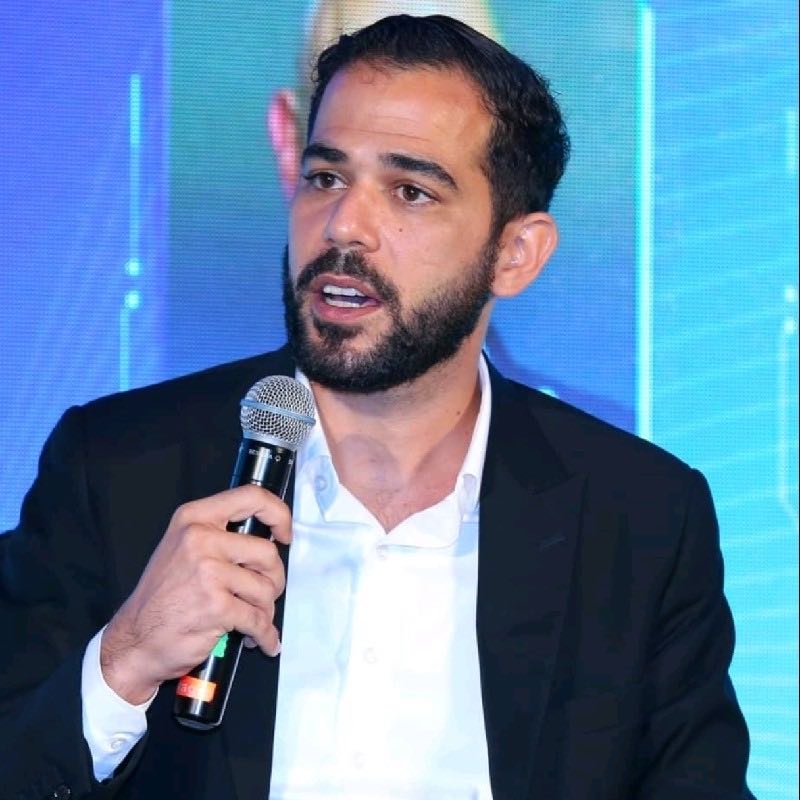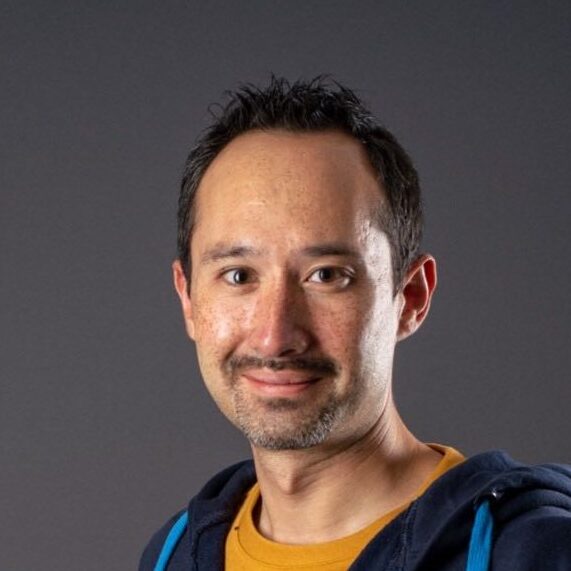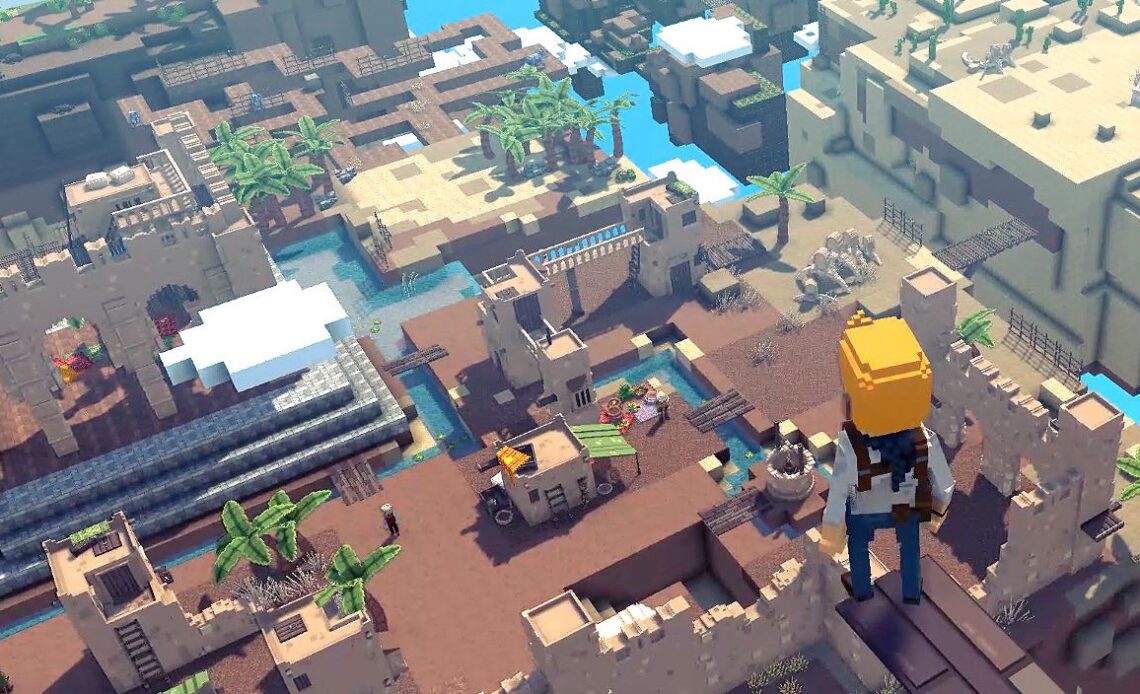
Above: A screenshot of the Sandbox virtual world.
Originally published in Newsday BusinessDay for February 10, 2022
On January 31, 2022, the Government of Barbados and the Caribbean Telecommunications Union presented a webinar titled, Traversing the Metaverse: A Caribbean Perspective.
The Government of Barbados previously announced in November that it would be establishing a virtual embassy, signing an agreement with virtual world builder Decentraland.
Barbados is also exploring strategic partnerships to create sovereign virtual real estate with other virtual world builders, including Somnium Space and Superworld.
Rodney Taylor, Secretary General of the CTU introduced the first panel which discussed the current state of virtual play, noting the importance of leadership and adoption by Caribbean governments in rapidly emerging technologies.
“Government policy is critical,” Taylor said, “but it is not the only ingredient.” “There must also be a corresponding demand by citizens and significant private sector capacity to innovate and provide technological solutions in the local economy.”
“The one thing we must not do in the region is to relinquish all technological innovation to the so-called developed countries and be consumers of products residing in a distant cloud.”
The panel’s host was Gabriel Abed, Barbados’ Ambassador to the UAE, a board member of ANSA Bank and Chairman of its Digital Subcommittee.
According to Abed, the metaverse that’s coming won’t be a pay to play space. Anyone with time, skills and a device to connect should be able to participate.
“There isn’t a need for investment,” Abed said, urging restraint in spending on the metaverse, “but I would advise that you not do that until you have figured your way around. I would start the learning campaign first.”
The discussion he led with Hrish Lotlikan, founder and CEO of Superworld and Borget Sebastien, COO, Sandbox Metaverse, sought to do exactly that.
The approaches taken by Superworld and Sandbox to virtual reality differ in interesting ways.
Sandbox is building a virtual world with avatars, the same principle that is used in modern massive multiplayer role player games (MMORPG), but with its own blockchain-secured, token-based currency. Superworld is leaning in on Augmented Reality (AR) and VR to create a world that’s layered on top of the meatworld that we live in.
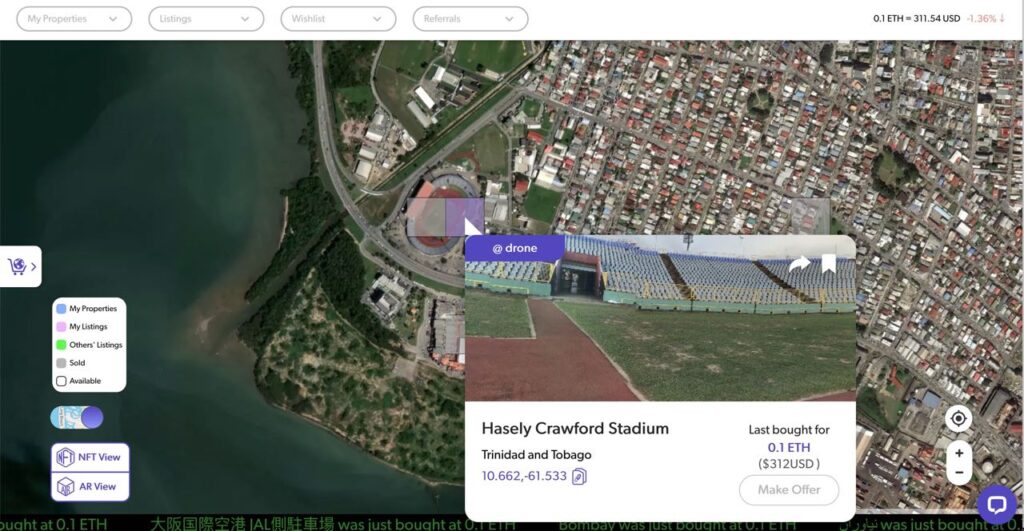
“The metaverse is a combination of your life online (and) offline,” Lotlikan said.
“It encompasses virtual worlds and platforms. Essentially it is a persistent interface that enables you to do anything that you love and enhances life, your work, your play, literally every aspect of your life.”
“Superworld is a virtual world mapped on top of the real world. Everything in Superworld is around us.”
Superworld sells 100m square plots of virtual real estate for 0.1 of an Ethereum token (roughly USD $300) and it isn’t some remote concept.
The Burj Khalifa in the UAE is currently available for resale at 50 ethereum and nine plots have already been purchased in Trinidad.
Superworld user @drone owns half of the Hasely Crawford Stadium, but hasn’t marked up his purchase for resale yet.
Superworld also partnered with the Caribbean Disaster Emergency Management Agency to mint a fund-raising NFT.
Borget Sebastien, Chief Operating Officer of Sandbox Metaverse explained that his company’s approach was “About being able to access new types of experiences that are more immersive through a series of digital parallel universes through an avatar, a 3D representation of yourself that you can carry across all those multiple worlds.”
The company, launched in 2011, has created several partnerships that now exist in the Sandbox metaverse with businesses as diverse as the South China Morning Post, Snoop Dogg and The Walking Dead.
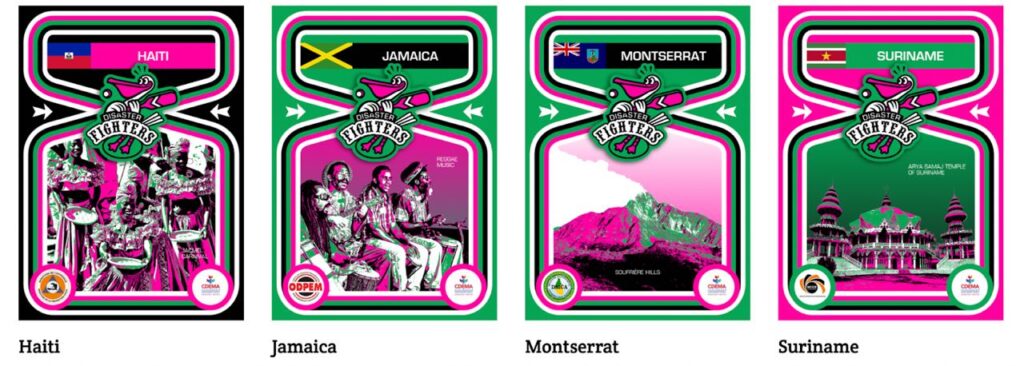
In the Sandbox, Sebastien says, “Your identity is actually yours, it can be moved across different applications, services and worlds, which is not currently the case in many so-called metaverses.”
“(Those) are essentially virtual worlds or video games which are closed environments owned by one single entity (who is) operating it and not allowing their users to carry that digital identity asset or currency across the board.”
Regarding Facebook’s rebrand to Meta and insistence on a refreshed commitment to building a metaverse, Sebastien found little in the announcements that convinced him of a real plan to build a persistent, open digital world.
“It is not enough,” Sebastien said.
“The core of their business model, which is (built) around user data collection does not push toward the free web and user community and a less centralised approach. They left out everything that would have been of benefit to users.”
The Sandbox metaverse has its own internal currency, Sand, which is described as an ERC-20 token, making it a peer equivalent with Ethereum and Bitcoin.
Sandbox users can also purchase land and create assets, accumulating value through engagement and creative input.

Participants are able to monetize their presence and digital assets in the universes they create through the use of NFTs and blockchain technology.
There are 18,861 unique virtual landowners using two million token wallets in the Sandbox metaverse.
Superworld is also grappling with developing technologies and emerging virtual world conceptualisations as it builds out its virtual map of the world. The company currently has 2,927 landowners.
“Superworld is focused on becoming a gateway to the real world for other persistent virtual worlds,” said Lotlikan.
“We’re doing this to provide services at the highest level.”
Having a return on time spent in virtual worlds, Lotlikan believes, is one way that the metaverse will grow and increase in value.
“How do we leverage these technologies to enhance people’s real lives, how do we help to build a better world? How do we collectively take all these activities and do something very positive for the world?”
How do we take these tokenomics mechanisms and apply them to real life activities and people’s passions?”
“Centralisation is not the future of the metaverse. The concept of creating open, interoperable models, this is what’s going (to be the future).”
Borget Sebastien on the evolution of the open Internet.
– Web 1.0 – The publication of information on the internet that is made available for the free consumption of visitors. Visitors do not generally contribute to this version of the web.
– Web 2.0 – The social web. The platform and the content evolve as users keep contributing to it. The rise of User Generated Content. That content is being created by users, but it is controlled by a few entities. The value of that information is retained by the hosting entities and does not go back to its creators. When it does, it’s a trickle.
– Web 3.0 – Is being built on the premise that users should own their data and the way they sign into services and applications.

